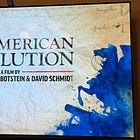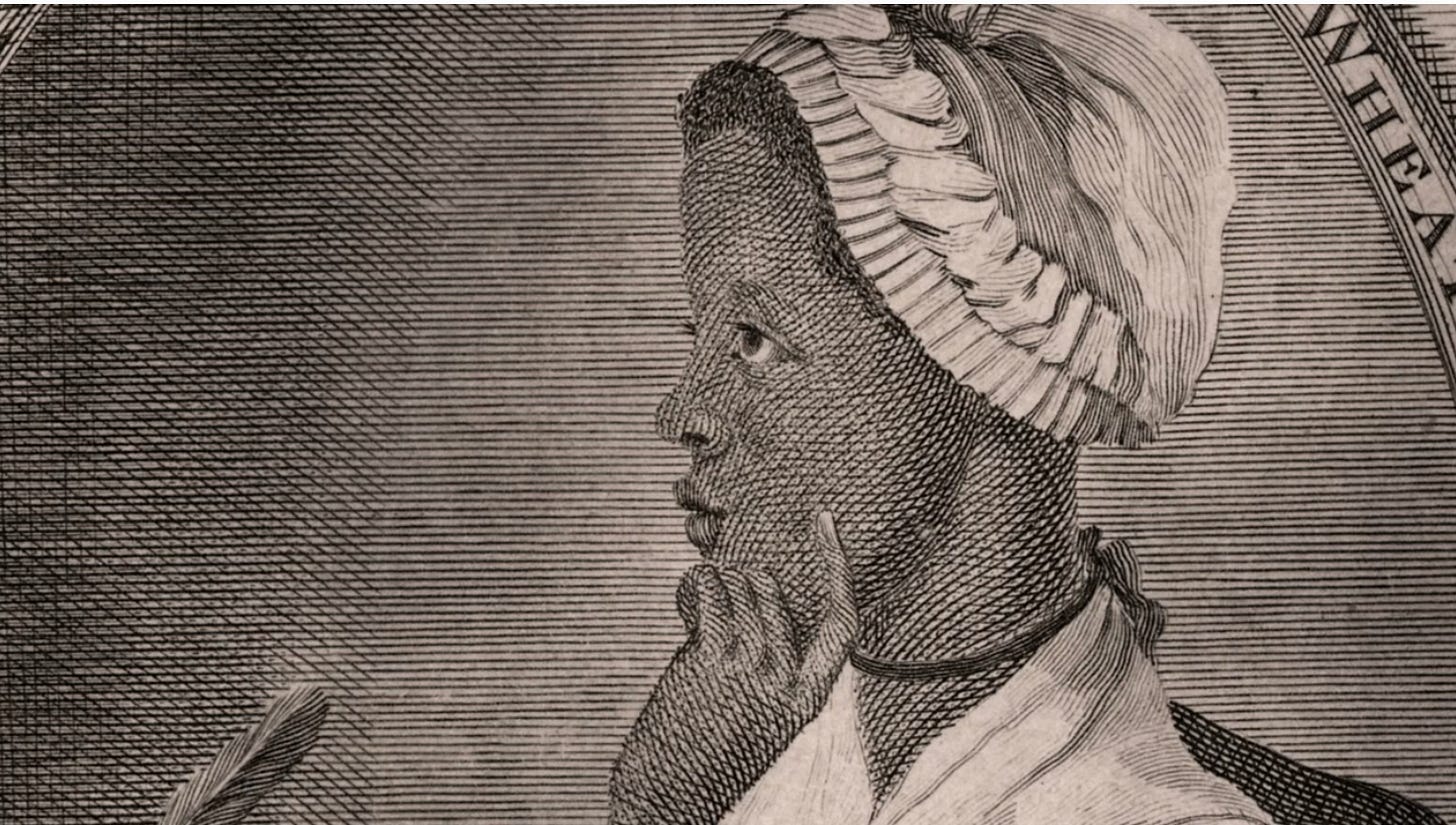Episode 2 of The American Revolution
Black voices and choices, missing indigeneity, and George was complicated
Hi you,
I don’t have the time to do as thorough a review of the second episode of Ken Burns’s The American Revolution on PBS as I did for episode 1, but I’m gonna get something out while it’s fresh nonetheless. Here’s that episode 1 post in case you missed it:
The second episode was a lot about battles and warfare tactics and more typical military documentaries that I’m used to. I’m gonna skip over all that because it was less interesting than the following:
The voice and choice of enslaved people at the time of the revolution
Missing indigenous depths
Assorted thoughts including empire
Voices and Choices of the Enslaved
Let me just say I’m loving Amanda Gorman as the voice of Phyllis Wheatley. The voice of America’s would-be, should-be conscious during all this talk of liberty in a nation founded in human bondage through chattel slavery.
Watching the series, I recognize Gorman’s voice every time she begins, but it’s not just the sound that’s familiar. It’s the truth she is channeling across time for those of us who still need to hear and feel it today.
In every human breast, God has implanted principle, which we call love of freedom. It is impatient of oppression and pants for deliverance. I will assert that the same principle lives in us. - Phyllis Wheatley
Darby Vassal is a name I hadn’t heard about. He was a Black boy at the time George Washington took up residence in Cambridge, Mass. This exchange caught my attention:
Washington urged him to come inside and get something to eat. He had plenty of chores for him to do. When Darby asked what sort of wages he could expect, Washington thought the question impertinent and unreasonable. Darby. Vassel lived to be a very old man, and when asked, he liked to say that in his experience, George Washington was no gentleman, since he’d expected a boy to work for free.
I think this episode did a good job complicating Washington without totally undermining him. You can feel the evolution from Virginia enslaver to leader of multiracial, integrated troops.
Liberty Further Extended
I also had never heard of Lemuel Haynes until this episode. He was a free Black man from Granville, Mass. and likely the first Black ordained minister in the United States. He was one of the first to seize on the language of the Declaration of Independence in a call to make it real for all people, like the words say, in a piece called Liberty Further Extended.
Liberty is a jewel, which was handed down to man from the cabinet of heaven. It has pleased God to make of one blood, all nations of men for to dwell upon the face of the earth. And as all are of one species. Therefore, we may reasonably conclude that liberty is equally as precious to a black man as it is to a white one and bondage equally as intolerable to the one as it is to the other.
Here’s more of his essay from the National Constitution Center.
Some Missing Indigenous Depths
While I was absolutely excited and impressed to have the series kick off with the words of Haudenausaunee spokesperson Canasatego, this episode didn’t go much further in the indigenous storyline in terms of weaving that parallel thinking and likely influence on the ideas surfacing during this revolutionary time.
I do appreciate the inclusion of indigenous allies who sided with the rebels. Like Captain Solomon Wa-haun-wan-wau-meet of Stockbridge who said:
Wherever you go, we will be by your sides. Our bones shall lie with yours. We are determined never to be at peace with the red coats while they’re at variance with you. If we are conquered our lands, go with yours, but if we are victorious, we hope you will help us to recover our just rights.
But there were other statements in this episode that simply failed to acknowledge the precedence of indigenous thinking and falsely attributed ideas of equality uniquely to white Americans or European thinkers.
There were some slippery quotes in this episode from the voiceover:
Proclaiming the equality of all men was a genuinely revolutionary idea, but that equality was not yet extended to Native Americans, enslaved or free Blacks, the poor, or any woman
and, in reference to the writing of The Declaration of Independence
Thomas Jefferson was proposing something altogether new and radical in the world.
Yeah, but no. The idea of the equality of all was only revolutionary in the world of Europeans. But indigenous democracy had an even more radical concept of equality, one that extends rights and consideration to all life, not just human. As Chief Oren Lyons has shared on multiple occasions in reference to the Haudenausaunee Great Law of Peace, equity and justice were part of the worldview. Humans do not sit above nature, and certainly not above one another.
There was ample time given to OG wordsmith and satirist Thomas Paine and his Common Sense essay in this episode as well as nods to Enlightenment thinkers. But there was no acknowledgement, as is done well in the book The Dawn of Everything, that those Enlightenment thinkers were enlightened by the freedom and equality and thinking they encountered in The New (to them) World.
Other Thoughts
Like I said, this breakdown needs to be shorter as I’m short on time and literally preparing to go on stage (at the Netse Mot gathering in Seattle). A few more things
I appreciated the sophistication assumed of enslaved people in their decision about which side to be on in the conflict, British or American. Folks were just trying to do the best for them and choose between two untrustworthy options
It’s important that this series is highlighting the degree to which The Revolutionary War was also a civil war, pitting neighbor and family members against each other.
And I have mad respect for the British historian (need to look him up later) who drove home the point that from jump, the soon-to-be-Americans were pursuing empire. It’s in the names: Continental Congress and Continental Army. The fact that we sent Benedict Arnold north to take Quebec and that so much of what set off the separation from England was greed and hunger for westward land is important to remember.
What about you? What has stood out from the series so far? As always, share in the comments.




From the Declaration of Independence: He has excited domestic insurrections amongst us, and has endeavoured to bring on the inhabitants of our frontiers, the merciless Indian Savages, whose known rule of warfare, is an undistinguished destruction of all ages, sexes and conditions.
I love that you brought up Dawn of Everything -- I had the same thought!